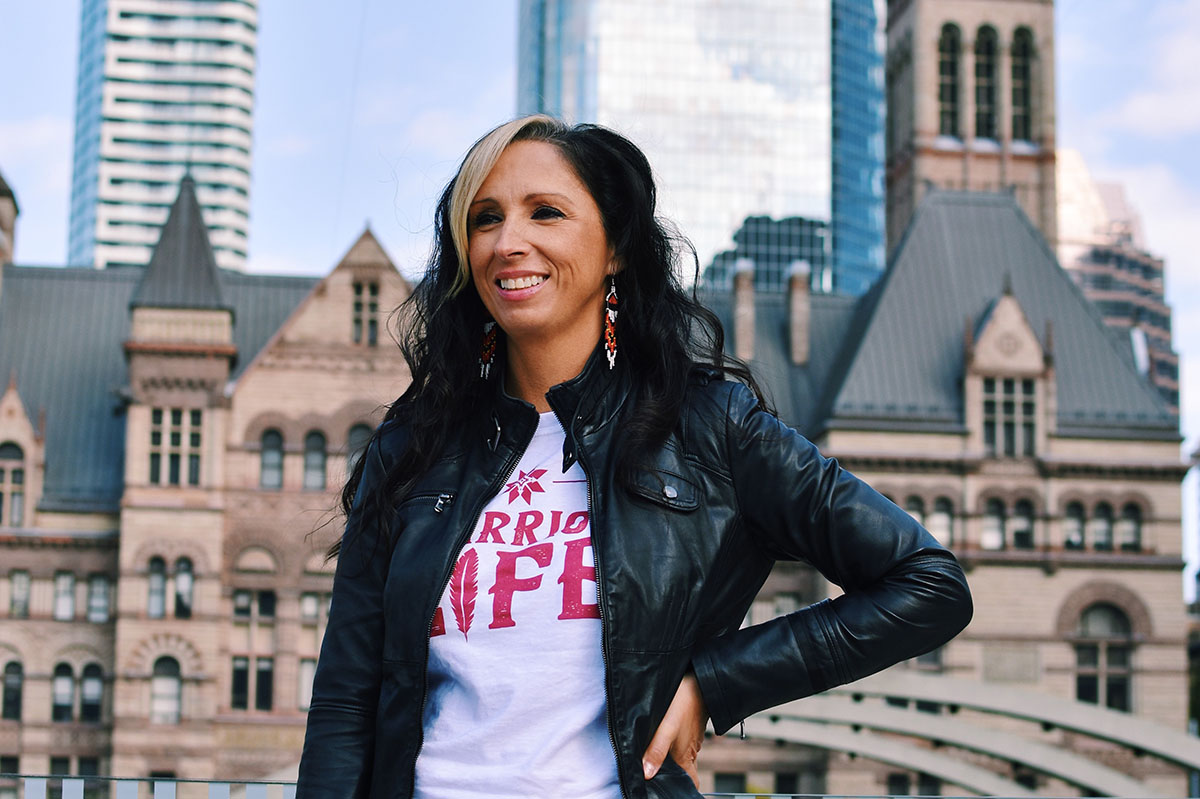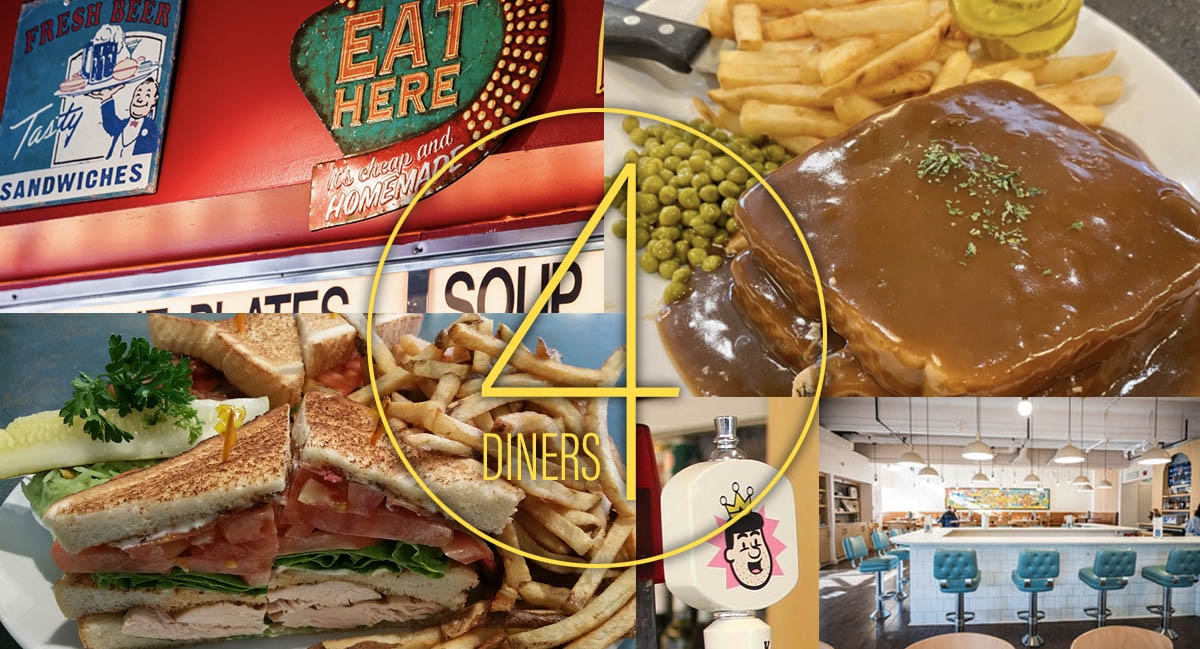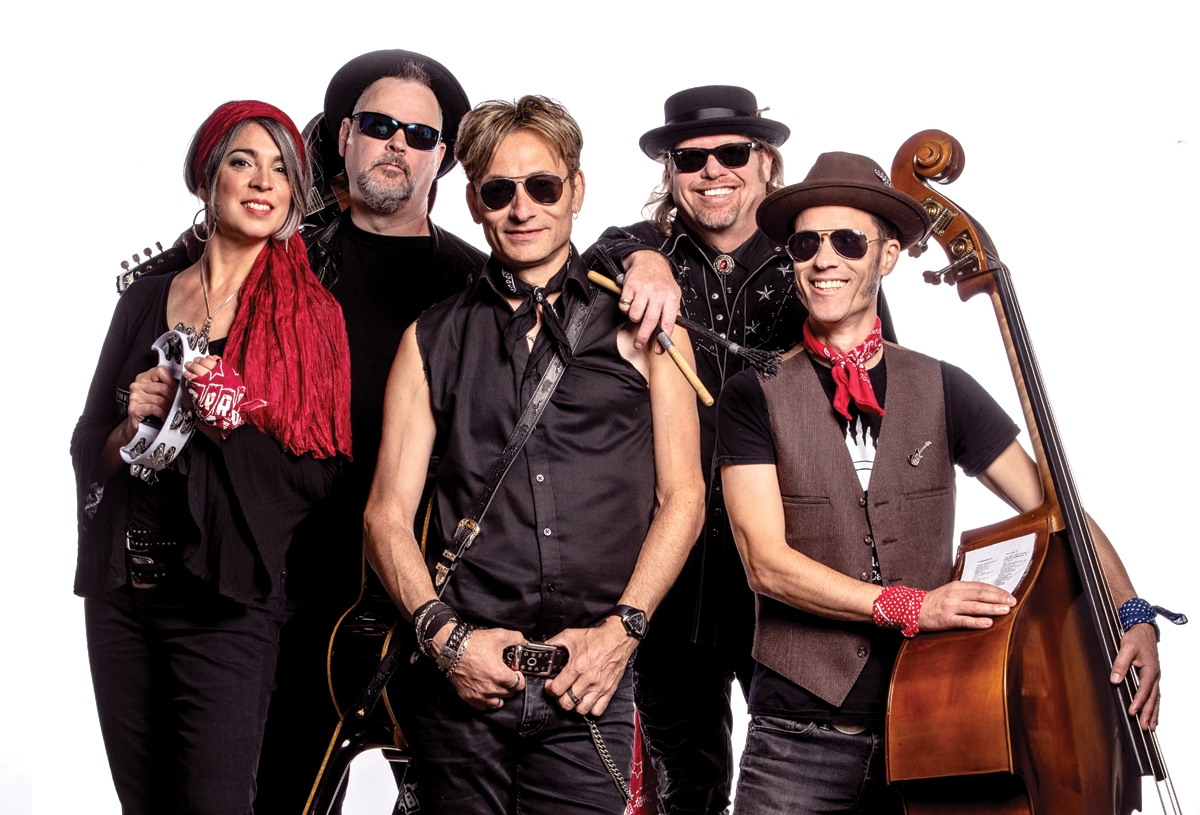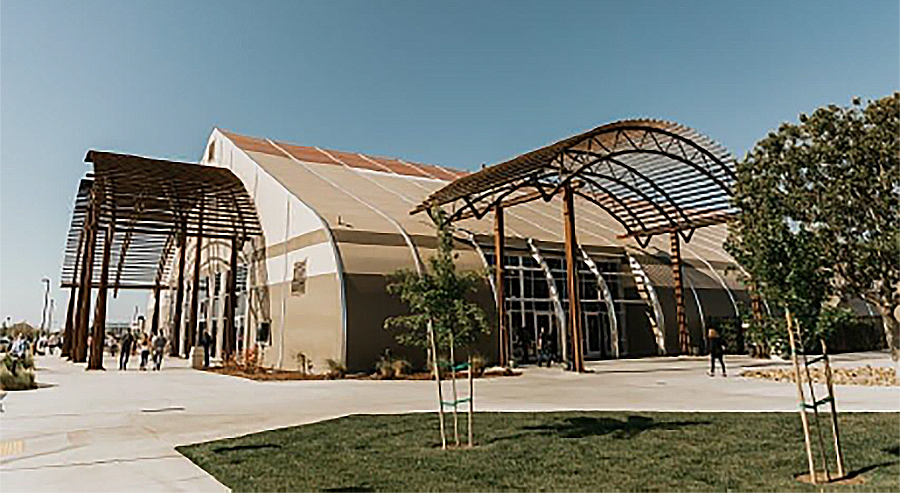
Pamela Palmater – A Woman of Consequence
Pamela Palmater is a remarkable leader paving the way for the future of Indigenous advocacy. She has dedicated her life to fighting for the rights of Indigenous peoples in Canada in her roles as a lawyer, activist, author, professor, and mother. Palmater’s relentless commitment to justice and ability to connect academic research with community engagement have made her a key figure in the fight for reconciliation in Canada.
I had the pleasure of interviewing Palmater during one of her busy days teaching at Toronto Metropolitan University. After an invigorating conversation, it was a shock to hear that Palmater grew up “mortally shy.” Once petrified at the idea of public speaking, she has become a fiery voice in every room she enters. Her passion is captivating and contagious.
Activism is embedded in Palmater’s DNA. She grew up in a fiercely politically active family and credits the majority of her 12 siblings for instilling a sense of advocacy within her from a young age. “My brothers and sisters went out and did everything they did with a vengeance . . . they dragged me to everything they did,” she said.
A member of the Eel River Bar First Nation in northern New Brunswick, Palmater reveres her small, tightly-knit community. “It feels like everyone is family,” she beamed. “Our territory is right on the beach. You can smell the ocean and hear the waves and the seagulls. Life revolves around that.”
As Palmater grew up, she shifted between the front lines of activism and the behind-the-scenes, focusing specifically on accessible public education. She spent 10 years working in the federal government in both Justice Canada and Indian Affairs (now called Indigenous Services Canada), which serves her as a well-rounded learning experience. Palmater is committed to making complex, pressing issues accessible to everyone. She understands that only some are able to attend university.
In her public outreach, Palmater emphasizes translating intricate concepts into simple terms anyone can relate to and understand. “I consider myself to be a translator,” she said.
By doing so, she ensures that her messages reach a broad audience, from young children to adults. Palmater’s “action-based education” tactic takes the form of podcasts, YouTube videos, social media posts, news & magazine publications, three books, protests, and her university lectures. She focuses on providing tangible solutions and calls to action rather than merely raising awareness, a personal pet peeve.
Palmater refuses to let Indigenous issues be seen as solely a component of history. She distributes a remarkable amount of focus across past and present issues, including sex discrimination in the Indian Act, Missing and Murdered Indigenous Women, Indigenous nationhood, and clean water on reserves, to name a few. “Canada has been found guilty of historic acts of genocide against Indigenous peoples and present acts of genocide. There is still sex discrimination in the Indian Act, forced sterilization of Native women and girls, the foster care crisis, over-incarceration, human trafficking, and racism in healthcare, policing, and education,” she said.
As a kid, Palmater did not know she would ever attend university, let alone hold four degrees and become the Chair of Indigenous Governance at Toronto Metropolitan University (TMU). The first in her family to complete a university degree, Palmater uses her role to create lifelong commitments to advancing Indigenous rights and fostering long-lasting relationships with First Nations communities. She appreciates the opportunity to focus on research, teaching, and public engagement, enabling her to create powerful impacts. “I call this position my research slash activism chair,” she said.
Palmater’s responsibilities extend beyond the classroom in her role. She actively engages with various committees, provides advice and guidance, and participates in events that urge students and colleagues to build awareness surrounding important issues and take action accordingly. Her involvement at TMU is not limited to Indigenous-focused causes but extends to supporting other marginalized groups. “It’s about supporting everyone in their own areas,” she said.
Passionate about creating accessible resources, Palmater has over 200 publications including three books. In her book Indigenous Nationhood: Empowering Grassroots Citizens, she delves into the concept of Indigenous nationhood. She emphasizes the importance of understanding that Indigenous nations are not homogeneous entities but diverse and distinct, each with their own histories, cultures, and visions for the future.
Palmater’s commitment to her work is fueled by her ability to find joy and creativity amid challenging circumstances. She has embraced podcasting to exercise a fun, creative outlet while addressing critical issues. In her podcasts, Warrior Life and Warrior Kids, she engages with influential Indigenous changemakers, discussing topics ranging from justice to corruption in policing. “I started my podcasts because I have always needed to be creative,” she said. “It’s very cathartic to me, and I get to talk to other people doing the same things.”
For inspiration and drive, Palmater looks to the other remarkable Indigenous women of the world. She holds a strong admiration for her good friend Dr. Cindy Blackstock, who fought tirelessly for the rights of First Nations children in care, leading to a multi-billion-dollar settlement and systemic changes. She also mentions Sharon McIvor, a relentless advocate to end sex discrimination in the Indian Act, who has welcomed back countless Indigenous women and children who were wrongly excluded, Ellen Gabriel, a driving force in advocating for Mohawk language, culture, sovereignty and land rights, and others who have risked their lives and freedom to protect water, land and people.
What grounds Palmater most of all is family. As a mother and grandmother, she relishes the opportunity to relive the joys of raising children and cherishes the moments spent with her loved ones. In her free time, she finds solace in physical activities: driving motorcycles, riding dirt bikes, hiking and running to release the everyday adrenaline and bring healthy balance.
The work done by Pamela Palmater throughout her life has earned her the title of a true changemaker. She calls on Canadians, Indigenous and non-Indigenous, to ensure they are playing their part in ending injustice and bringing about health, safety, and well-being for all.
She emphasizes that everyone has a sphere of influence. No matter how much one knows about Indigenous culture or treaty history, everyone has the power to do something: donate, share stories of resurgence on social media, sign a petition, organize a funding event at school, attend Have a Heart Day, ask a teacher to bring in Indigenous speakers, contact an MP, start conversations and think locally.
“Whatever you have, there is something you can do to help. Just think about the basic human rights of what is happening and make little changes today, tomorrow, and next week. As long as there are injustices, we need your help.”
Photo: Courtesy Pamela Palmeter











